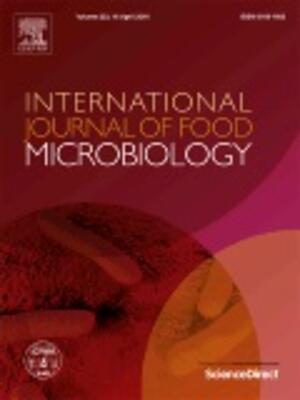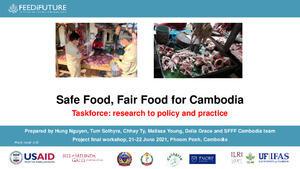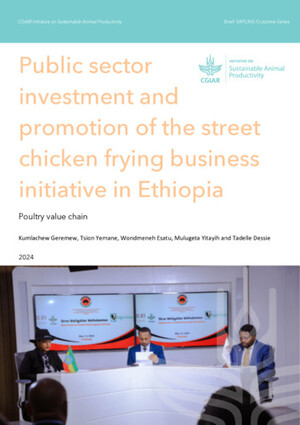
Dairy co-operatives and policy reform in Kenya: effects of livestock service and milk market liberalisation
Abstract
Liberalisation in the dairy industry in Kenya is currently under way in several forms. The urban milk market monopoly of the Kenya Co-operative Creameries has been lifted. Clinical veterinary and artificial insemination (AI) services are no longer publicly supported in many areas. Private sector response to these reforms was expected to be greatest in the high-potential market-oriented dairy zones of Central Province, where the dairy farmers' co-operative societies play a central role in meeting the needs of dairy producers. A survey conducted by the authors measured the changes between 1990 and 1995 in milk marketing and service provision by the dairy co-operatives. Tabular and GIS analyses were used to evaluate the survey data. Dramatic changes in milk market patterns are apparent, in ways unintended by the policy reforms. Most notable has been a large increase in the role of the unregulated raw milk market. This helped increase real milk prices paid to producers by up to 50%, but also led to a steepening of the price gradient with distance from urban consumption centres. Large increases were observed in the provision of veterinary and AI services by the dairy farmers' co-operatives societies, whose producer client base and credit facilities may enable them to compete effectively with the independent private sector. Market liberalisation therefore expanded the role of the raw milk market and the participation of the dairy farmers' co-operative societies in milk marketing and the provision of input services.
Citation
Owango, M., J. Staal, S., Kenyanjui, M., Lukuyu, B., Njubi, D., & Thorpe, W. (1998). Dairy co-operatives and policy reform in Kenya: effects of livestock service and milk market liberalisation. Food Policy, 23(2), 173–185. https://doi.org/10.1016/s0306-9192(98)00027-x










